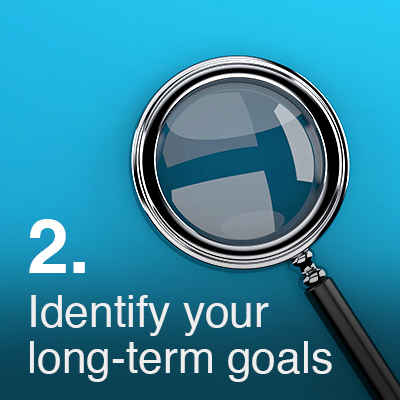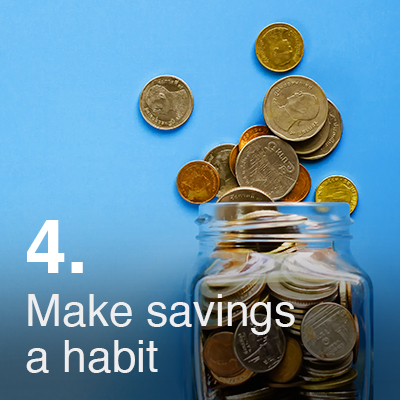
The earlier you start saving, the more time works in your favour, thanks to compound interest. Compound interest is when a principle layer of interest starts to accumulate its own interest. And the earlier you start, the more this affects your bottom line. Let’s say you want to get MYR1 million by age 65. Assuming a 6% return rate, if you start saving at the age of 30, you only need to put aside about MYR698 per month. Start the process just 10 years later at the age of 40 and you will need to put aside more than double that: over MYR1,435 a month. That’s a huge difference. By starting just 10 years later you will have to find an extra MYR221,000.

Start by thinking about your financial goals: what do you want to achieve? When do you want to achieve it? You may need to renovate your house in five years, or you may want to buy your first car in 12 months. Once you have established the size and timeline of your goals, you then have something clear to work towards. For goals that are small amounts you will be able to save up to reach them. For larger amounts, and if you have a longer timeline, investing will help you hit your target. This is a good time to look at the savings (fixed deposits), or investment options available to you (stocks, unit trusts or endowment plans), and decide which best suits your needs. These generally offer higher returns than savings accounts in the long term.

Go digital, and your wallet will thank you for it. Our research has shown that people who actively use digital tools such as budget trackers (or investment calculators) and online transactions save, on average, 8% more than people who don’t.

Building an initial pool of funds is challenging when it is done haphazardly, for example saving a hefty chunk of money one month, and nothing the next. The trick is to get into an easy rhythm that doesn’t fluctuate too much. Once you know your savings goal, it’s a matter of charting a realistic plan that will help get you from where you are now to where you want to be.
If you’ve always used savings accounts and wonder if you can get higher returns with other investment options, unit trusts are a logical next step and in the long term the returns are potentially higher than a savings account. Regular Savings Plans (RSPs) can make investing in unit trusts simple and fuss-free. RSPs work by allowing you to set aside a small fixed amount to be invested each month, starting from as low as MYR100 a month. Plus, RSPs utilise the principle of dollar cost averaging. Since your investment amount is fixed every month, dollar cost averaging means you buy fewer units in a fund when the price is high, and more units in a fund when the price is low. The cost of each unit can then be averaged out over time. For example, you would buy more of your favourite foods at the supermarket when they are on offer than when they are on sale at full price, averaging your spend over the year, maximising your buying power when prices are low.
As an investor, dollar cost averaging allows you to make a gradual entry into the market, and build a strong investment position over time, without needing to commit to a large amount of capital upfront or risk investing a big sum of money at a time when you may not have the cash available.

Want to start your investment journey? Everyone is constantly looking for ways to grow, preserve and distribute their wealth. Talk to our Wealth Specialists today. Get in touch with us.











